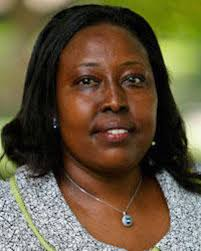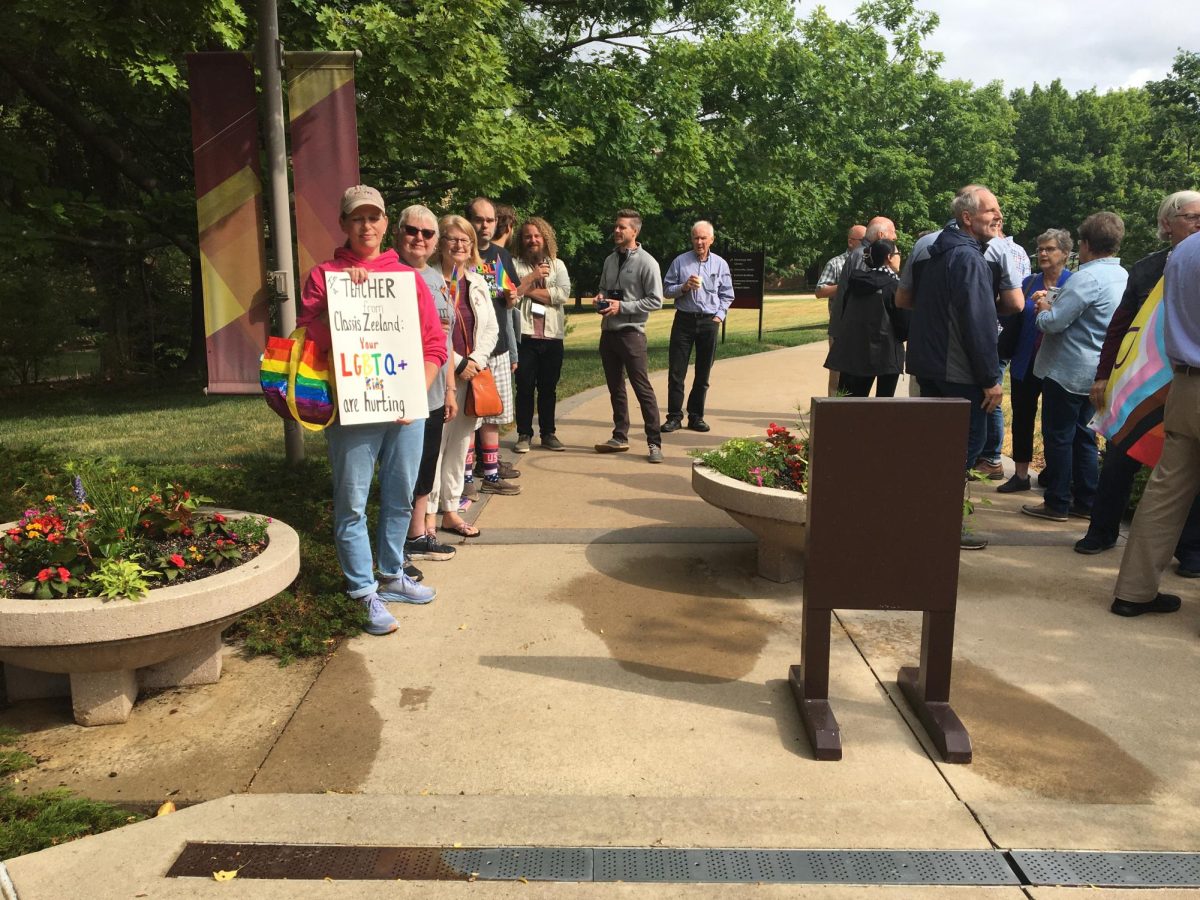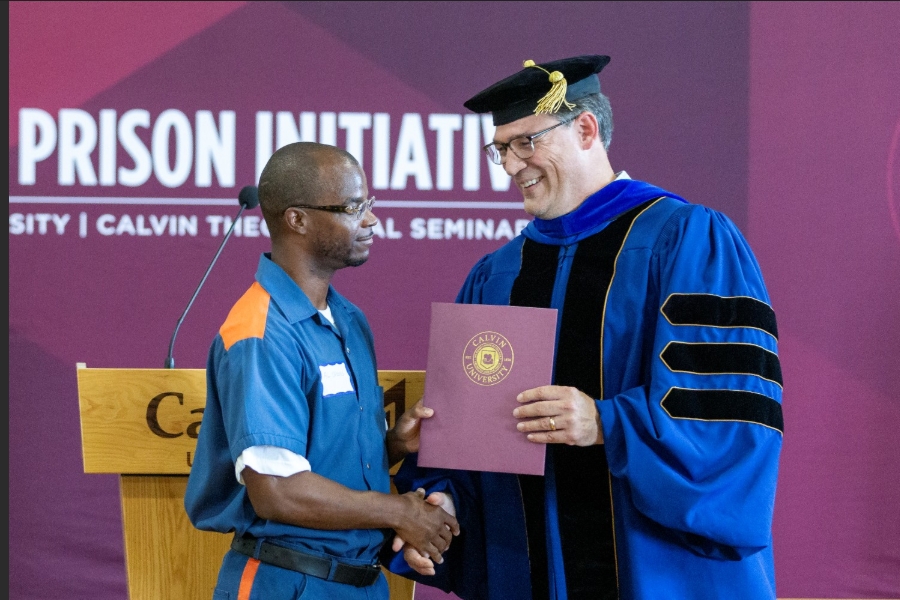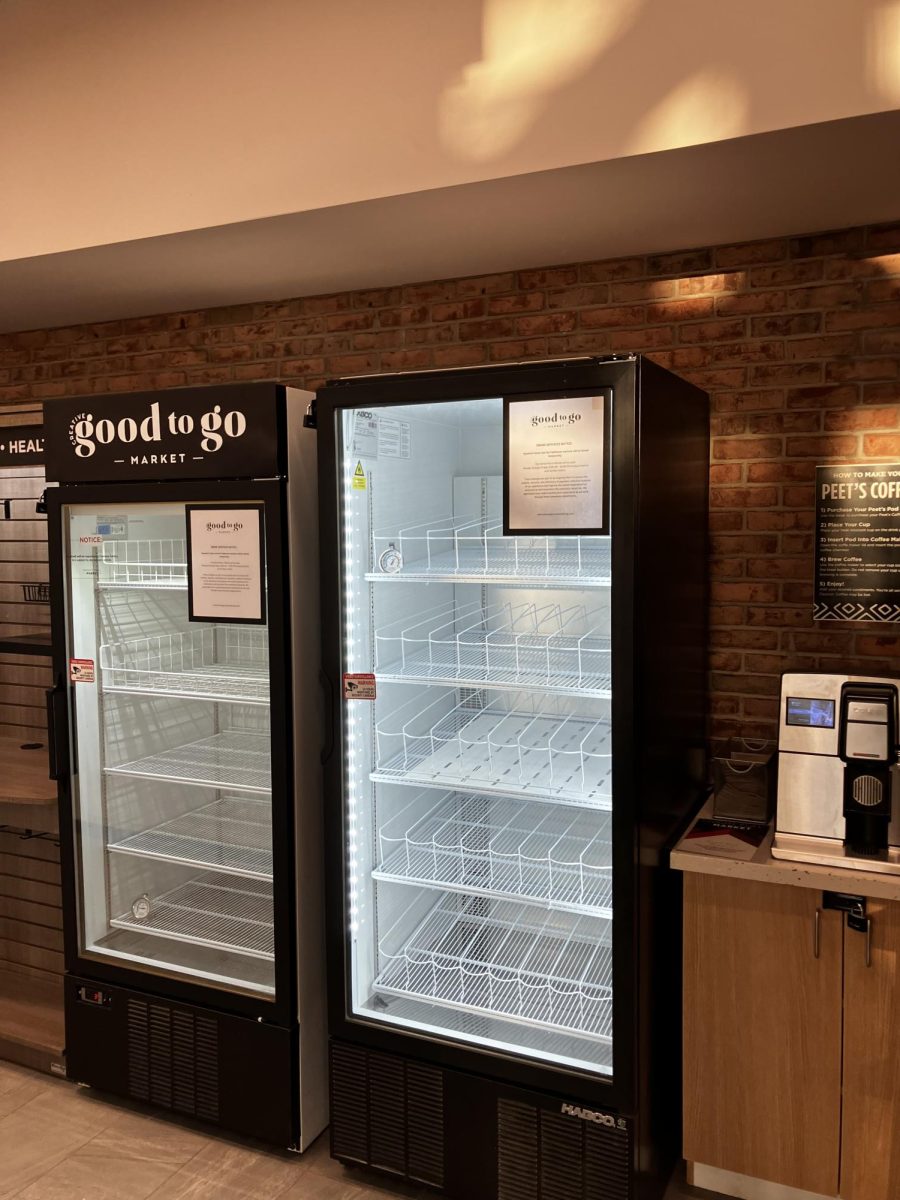
On Tuesday, Oct. 1, the religion department hosted a special lecture by Dr. Damaris Parsitau, director of Calvin’s Nagel Institute. Titled “Under the Radar, Written Out, or Silenced Voices? African Women in World Christianity between Spiritual Power, Agency, and Church Leadership,” the lecture explored the changing face of Christianity worldwide, and the new ways African women are shaping global Christian theology and practice.
The Nagel Institute focuses on how “the study of world Christianity can change perspectives, foster knowledge, and reinvigorate Christian thought and practice,” according to its website. Dr. Parsitau has been the director of the Nagel Institute since August 2023, and has collaborated on various research projects through the institute over the past decade.
For those who weren’t able to attend the talk in-person, Chimes spoke with Dr. Parsitau after the event. The following interview has been edited for length and clarity.
Chimes: In your talk, you focused a lot on people’s perceptions of what the average Christian in the world today is like. Can you talk me through what the median Christian in the world today is like and how that’s different from throughout history?
Dr. Parsitau: So, there has been a tremendous shift in the location of world Christianity from the Global North to the Global South. So, today, the majority of Christian people live in Africa, in Latin America, in Oceania, and in Brazil. [The median Christian] is probably a Black woman or a Black man; it’s no longer a white Christian in the Northern Hemisphere.
Chimes: You mentioned in your talk that most centers of theological education are in the Global North, even now that most Christians are in the Global South. Does the Nagel Institute do any work to support developing education institutions in the Global South?
Dr. Parsitau: Oh, absolutely. The goal was always to start an institute here that is outward focused. For more than 10 years, three projects from the Nagel Institute, which had a lifespan of three to four years each, were all focused on Africa. We had one on African theological advancement, then we had another one on the social impact of Christianity in Africa, then we had one called Engaging African Realities.
We would do summative conferences and media conferences to build capacity for scholars in the Global South. So although the Nagel Institute is based at Calvin University in the Global North, its outlook is actually towards the Global South.
Initially, they started projects in India, and then China, and then things happened there, and it was no longer possible for the Nagel Institute to go to China or to go to India, and they have focused on Africa since.
Chimes: Your scholarship focuses mostly on people in the Pentecostal or Charismatic traditions. What does the face of Reformed Christianity look like around the world?
Dr. Parsitau: Yeah, so I didn’t know much about the Calvin type of Reformed tradition until I came to Calvin. Of course, I got to know much about it through my academic scholarship because I worked with Nagel projects for the last 10 years, serving as a project advisor. But, you know, the Presbyterian Church is part of the Reformed tradition, and so I didn’t find many differences between Calvinism or Reformed traditions, more specifically with my Presbyterian faith.
We recite all kinds of confessions about our faith, but I don’t think that the Reformed tradition in my own context in Kenya, outside of the Presbyterian Church, is very well known. I learned later on that there is a Reformed church in one of the cities in Kenya, but I’ve never visited it, so I don’t know much about that. But the Reformed church is very strong in the Southern African region, and so you have Reformed Christianity, which is very strong there because of the Dutch immigrants who settled in South Africa.
Chimes: And what are some of the ongoing projects of the Nagel Institute?
Dr. Parsitau: We just got a project with Professor David Wang from Fuller Theological Seminary on spiritual formation. We are studying Christian spiritual formation using de-centered methodologies, and we’re focusing on the Global South again.
David Wang had a project that studied theological seminaries in the U.S., and I think in Europe, but he found that not very much is known about spiritual formation in the rest of the world. So he set out to just try to fill in that gap and understand spiritual formation from outside of Europe and America. And so he got a grant, which he brought to us, and that project is ongoing right now.
And he did sub-grant me some money to study women’s spirituality, women’s spiritual formation, and I’m focusing on that right now. I have a Zoom meeting today actually, talking with women who were selected from across the entire African continent. We want to have a representative situation where we are not leaving anybody behind. We are also prioritizing working with women living with various disabilities, including neurodivergent women.
Chimes: And what are some of the end goals for that project?
Dr. Parsitau: We just want to understand the impact of seminary education and theological education on how people are formed. What is the impact of that, even on leadership, on social transformation? That’s really the main goal, to understand how spiritual formation has a direct impact on virtue development of Christians. Virtues of humility, virtues of kindness, virtues of all the gifts of the Holy Spirit.
Chimes: What are some of your hopes for the Nagel Institute going forward?
Dr. Parsitau: I have so much hope for the Nagel Institute. We’d like to design more research projects that focus on not just Africa, but also Latin America and probably India, so that we have an inclusive Nagel Institute that’s not only focused on Africa, but the entirety of the Global South.
That’s ambitious, but I do think that we cannot just focus on Africa alone because it’s not the only center of world Christianity. Christianity is big in Asia, Christianity is big in Latin America, and I think we need to build bridges and to reach out and build community with those geographic regions.
I’m also hoping to be able to convince Calvin to start courses in World Christianity. I just really believe that if Calvin is an international university — and we live in such a globalized world — then I think that students would be better for it if they have a full picture of what is going on in the world in terms of Christian development. I think they’ll be better for it.











